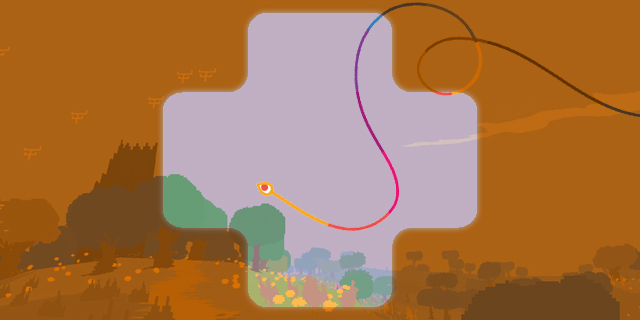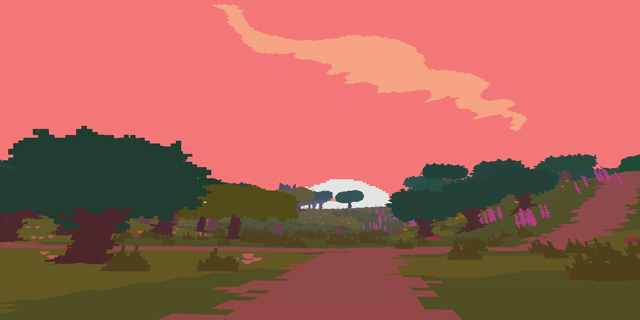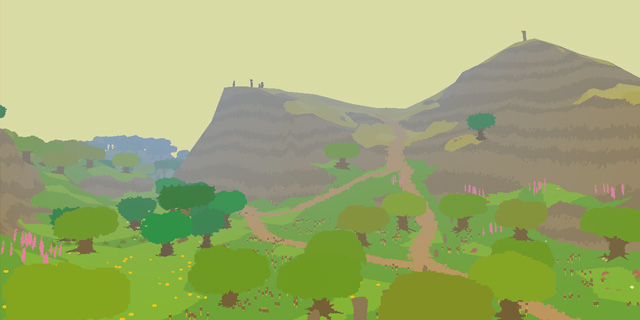
As I mention in my review of the new indie title Hohokum, I prefer games with structure versus those that tend to let you roam free, learning as you go. Hohokum’s aimless approach was both its greatest strength and weakness, yet it made me realize I appreciate similar titles and their approach to that design. It’s not the best example of this approach to game design, but it had me thinking about those design philosophies and how important they are to gaming as a whole.
It can be hard to force yourself to appreciate these experiences when you it goes against everything you’re used to in a game, but stepping away from your comfort zone and being allowed to explore might be all you need to realize the power of these titles. Proteus is one such game, forcing you to rely on your instincts and set out head first into an adventure that might change your perspective on these experiences as a whole.

After the island is generated and the game begins in earnest, you’re thrown into the world of Proteus with absolutely no idea how to proceed. You walk around, exploring the game’s beautiful world with little to go on in terms of objectives or goals. There is a way to make progress and an ultimate end goal, but this is purely a case of it being about the journey and not the destination.
This is what I love about Proteus, and why I feel it succeeds where a game like Hohokum fails. While Proteus is undoubtedly plays like any old first-person game would, from the very beginning it does little to mask what it is and you are quickly aware of what kind of game you’re playing. Hohokum is similar in some respects, but the exploration isn’t the key. You quickly learn each world has a gimmick and it may take some experimentation to figure that gimmick out, it’s not really a journey. It’s the equivalent of a pixel hunt in an adventure game. It’s still enjoyable, mind you, but something about it never clicked with me.
To me, Proteus has some of that, but part of its core isn’t about solving a set number of particular puzzles so much as simply sitting back and learning about this weird little world you found yourself wandering. You’re alone, in a seemingly dreamlike environment and forced to actually think about how your interactions with the environment affect it and progress the passage of time. That’s a goal, but again, it feels less like a checkmark on a list of objectives and more the game’s reaction to your need to learn.

In a way, titles like Minecraft and the hundreds of other survival-focused titles also accomplish this. Although Minecraft has an end goal, at least in its survival mode, the way you approach that goal, assuming you even want to, differs for just about everyone. Proteus may not provide the same level of freedom, but the philosophy behind it is the same. Poke and prod the world and maybe, just maybe, you’ll get a reaction. Adhere to your adventurous side and allow yourself to just enjoy what’s in front of you. You know there is progress to be made, but it’s never a focus, only a result of the inevitable.
Clearly this style of game isn’t for everybody and there’s not much titles like Proteus or even Hohokum can do to change that, but there is much to admire about this approach to design. It’s not just about fewer tutorials and less handholding, it’s about the idea of being a small person in a seemingly large world that is full of potential challenges. As you progress, you are forced to learn, yet can never take it for granted.
Perhaps I am giving Proteus too much credit, but it’s less about that individual game and more about how it made me think about similar experiences. I even appreciate titles like Hohokum, despite its flaws, and find we can learn a lot from these laid back, less-focused experiences. Sometimes you just need to take a deep breath and wander.



















